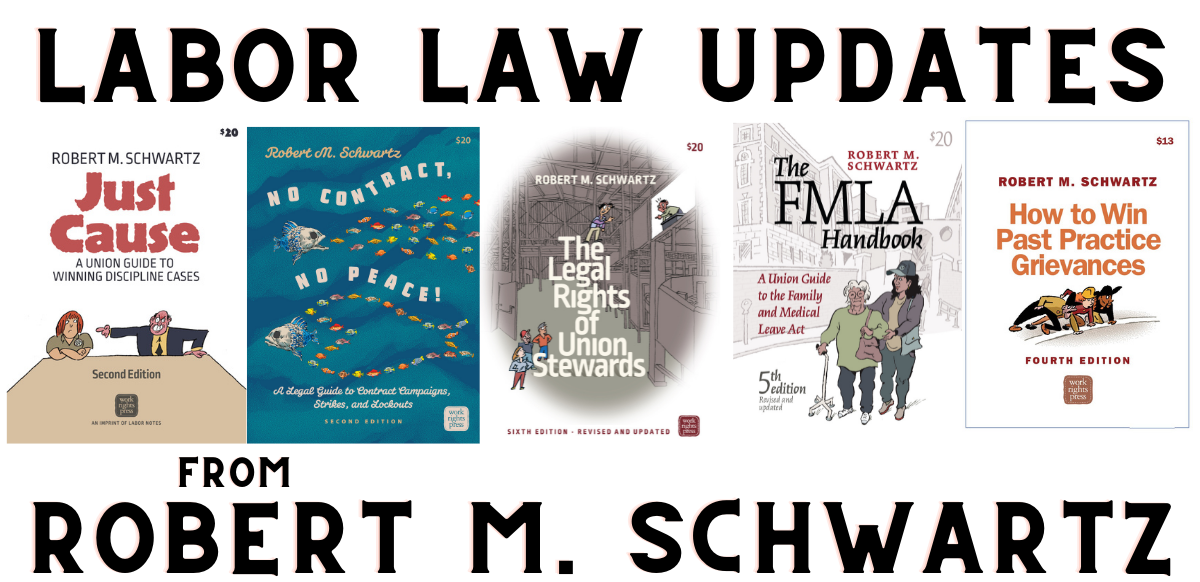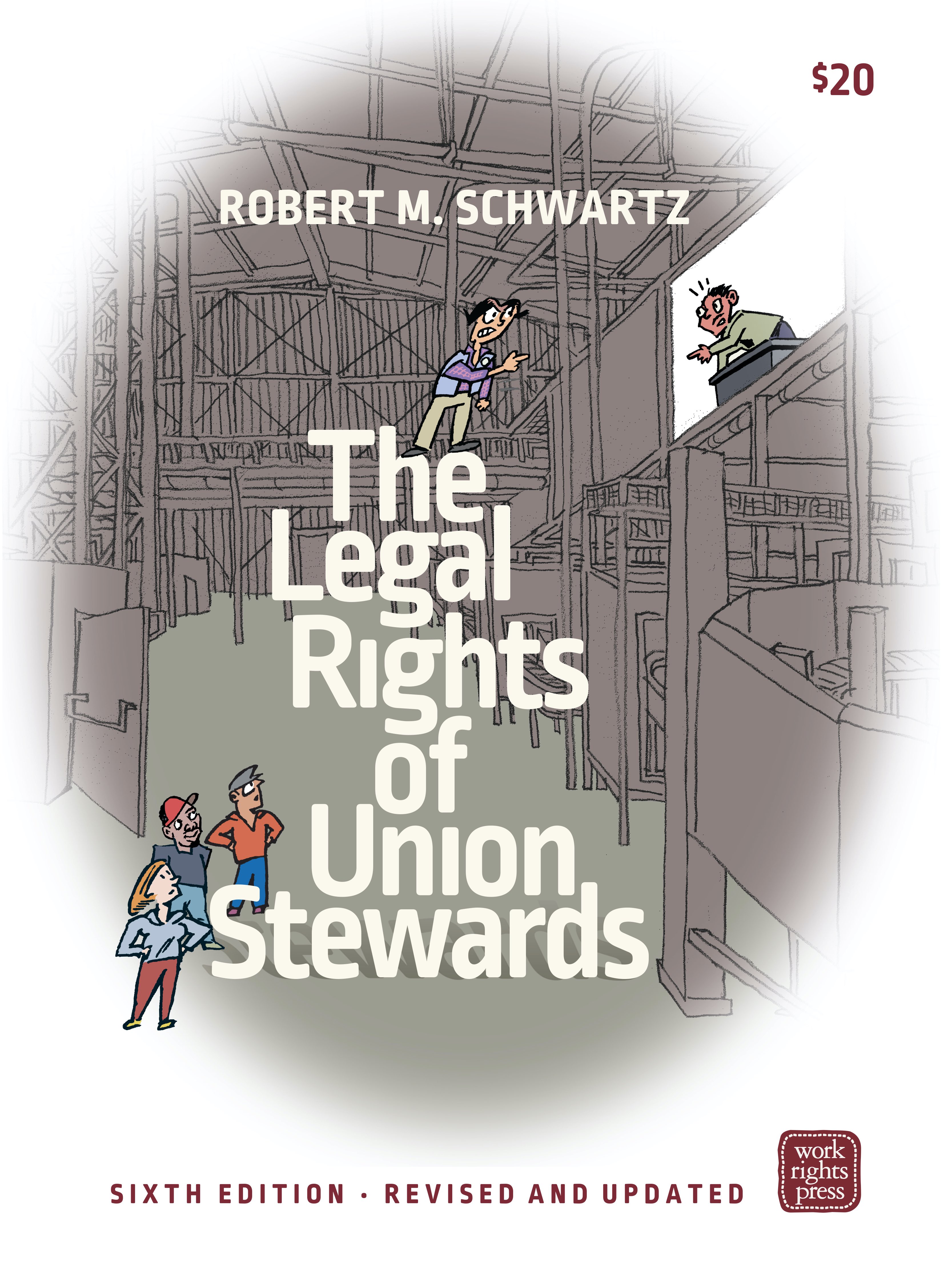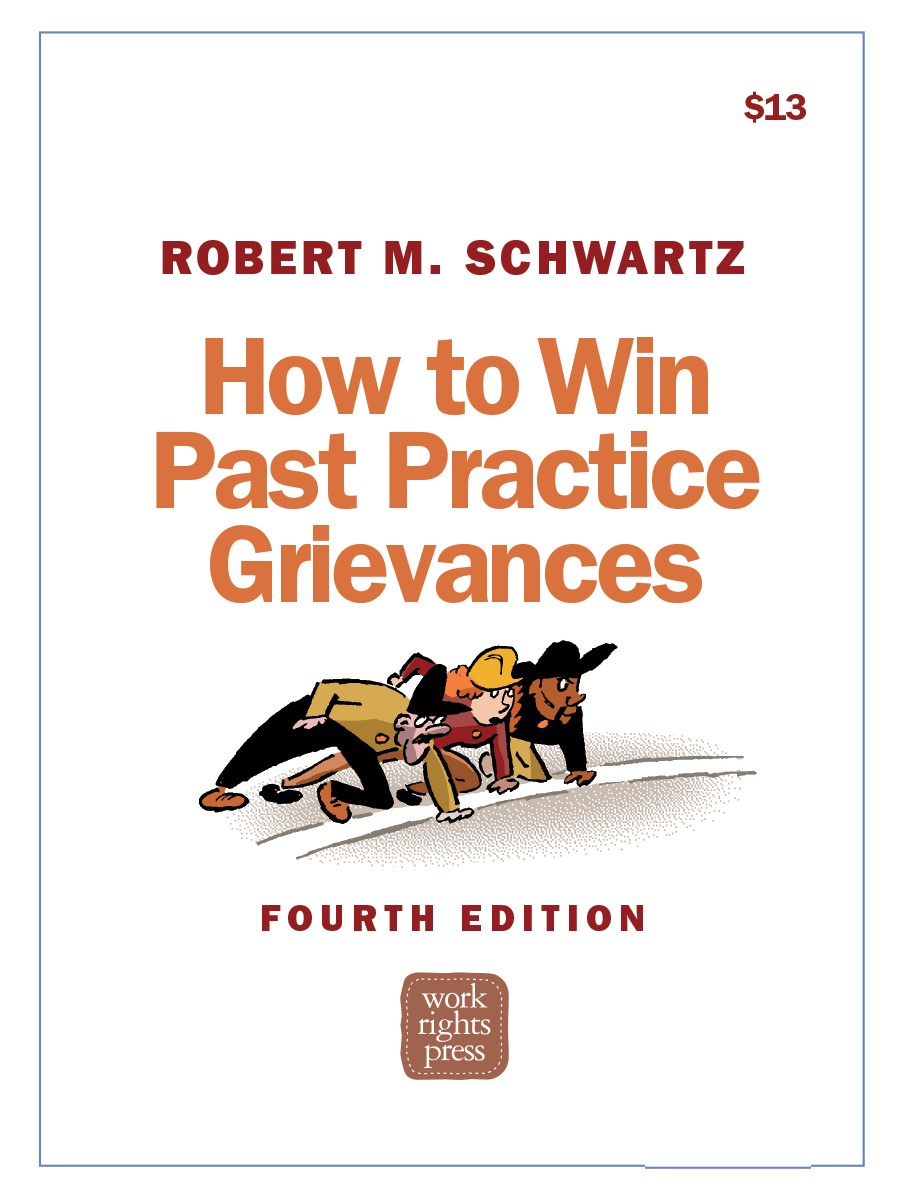
This site is intended as a companion to Robert M. Schwartz’s series of Work Rights Press books, which include:
- The Legal Rights of Union Stewards
- Just Cause: A Union Guide to Winning Discipline Cases
- How to Win Past Practice Grievances
- The FMLA Handbook
- No Contract, No Peace: A Legal Guide to Strikes, Picketing, and Inside Campaigns
Labor law is constantly changing, influenced by which party’s appointees hold a majority on the National Labor Relations Board and by federal court rulings. The Trump Labor Board, for instance, upended decades of precedent with rulings that undermined the special status of union stewards and strengthened management’s ability to make unilateral changes mid-contract. In the years ahead, though, some of the worst rulings of the Trump Labor Board may be overturned by Biden appointees.
It’s impossible to update the books every time there’s an important change in the law. Instead, we are establishing this site. It will note major changes in labor law on subjects covered by Schwartz in his books.
The site is not meant to be comprehensive. For updates on labor law, it is often useful to read material from management-side law firms—consider subscribing to the National Legal Research Group’s Employment Law Update newsletter. Another helpful source is NLRB Watch, “a pro-union Facebook group that monitors everything and anything NLRB.”
Questions for Robert Schwartz can be sent to dan[at]labornotes[dot]org. —Editors.
Last updated: 2/27/24
THE LEGAL RIGHTS OF UNION STEWARDS (6th Edition 2020)

Note: The below information is most relevant to readers who have the editions of the book printed in 2017 and 2020. Some of this information has been incorporated into the most recent revised version, published in 2021.
Salty language (pages 26 and 31). Union representatives can once again tell management where to shove it, and in so many words. In a 2023 decision, National Labor Relations Board members appointed by President Joe Biden returned to members their right to salty language and some profanity. The board made the decision in Lion Elastomers LLC II (2023).
The decision reversed a prior ruling by the Trump-appointed Labor board, which in General Motors LLC (2020) had removed protections for union representatives who engaged in “profane ad hominem attacks” at grievance meetings.
For more information on the most updated ruling and its implications, see the article by Robert Schwartz, "Biden Labor Board Restores Right to Use Heated Language," Labor Notes, May 2023.
Bargaining notes (page 52). Stericycle (2021) cited for the first time a so-called “labor relations privilege” allowing a party to deny a request for copies of bargaining notes—even if the notes are needed to research the meaning of disputed contract language.
Rule against unilateral changes (chapter 8, pp. 83-96). MV Transportation (2019) significantly weakened the NLRB rule banning changes in matters not covered by the contract. The decision allows an employer to make a mid-term change in a policy or practice without bargaining with the union if the change comes within the “compass or scope” of a management-rights, zipper, or other clause granting the employer exclusive control over a subject, such as assigning work or issuing rules or regulations.
For more on this ruling, see the article by Robert M. Schwartz, “After Labor Board Ruling, Unions Must Shut Door on Management Rights,” Labor Notes, July 2020.
HOW TO WIN PAST PRACTICE GRIEVANCES (3rd Edition 2017)

Note: This information has been incorporated into the most recent revised version, published in 2021.
Rule against unilateral changes (pp. 53-56). MV Transportation (2019) significantly weakened the NLRB rule banning changes in matters not covered by the contract. The decision allows an employer to make a mid-term change in a policy or practice without bargaining with the union if the change comes within the “compass or scope” of a management-rights, zipper, or other clause granting the employer exclusive control over a subject, such as assigning work or issuing rules or regulations.
For more on this ruling, see the article by Robert M. Schwartz, “After Labor Board Ruling, Unions Must Shut Door on Management Rights,” Labor Notes, July 2020.
NO CONTRACT, NO PEACE—A LEGAL GUIDE TO CONTRACT CAMPAIGNS, STRIKES, AND LOCKOUTS (2nd Edition 2014)

Medical benefits (p.105). Hawaiian Telcom (2017) restricts employers from canceling health coverage during strikes. Under the decision, if a union contract creates a benefit that is “accrued” (i.e., “due and payable”) when a strike begins, the employer must continue the benefit for the course of the strike unless (1) language in the (expired) contract clearly allows the employer to cease providing benefits when the contract ends or when employees stop working, or (2) in the case of benefits not listed in the contract, if the employer proposes to terminate coverage and bargains the change to a good faith impasse.
Permanent replacements (p.112). American Baptist Homes of the West (2016) bars employers from hiring permanent replacements during a strike if there is evidence that one of the purposes is to interfere with concerted activities, for example by discouraging future walkouts, punishing strikers, or breaking the union.
For more on this ruling see the article by Robert M. Schwartz, “Permanent Replacements? Not So Fast, Labor Board Says,” Labor Notes, June 2016.
---
FURTHER READING FROM ROBERT SCHWARTZ
Robert Schwartz has been a frequent contributor to the pages of Labor Notes over the years. Here are a few highlights. For more, check out his Work Rights Press book series at Labor Notes.
File an Information Request with Every Grievance
Getting the Most Out of Information Requests
Trump Labor Board Upends Special Status of Union Stewards
Resources for the Rank and File: An Interview with Robert Schwartz
Legal Rights in a Contract Campaign
Using Just Cause to Defend Against Unfair Discipline
FMLA Doctor's Notes: What Unions Need to Know
Working without a Contract: A Strategy Whose Time Has Come?
Representing Members at Investigatory Interviews
Got Unfair Labor Practices? Put 'Em to Use
Time to Update the Union Handbook on Just Cause
After Labor Board Ruling, Unions Must Shut the Door on Management Rights
Everything You Were Afraid to Ask about Lockouts
